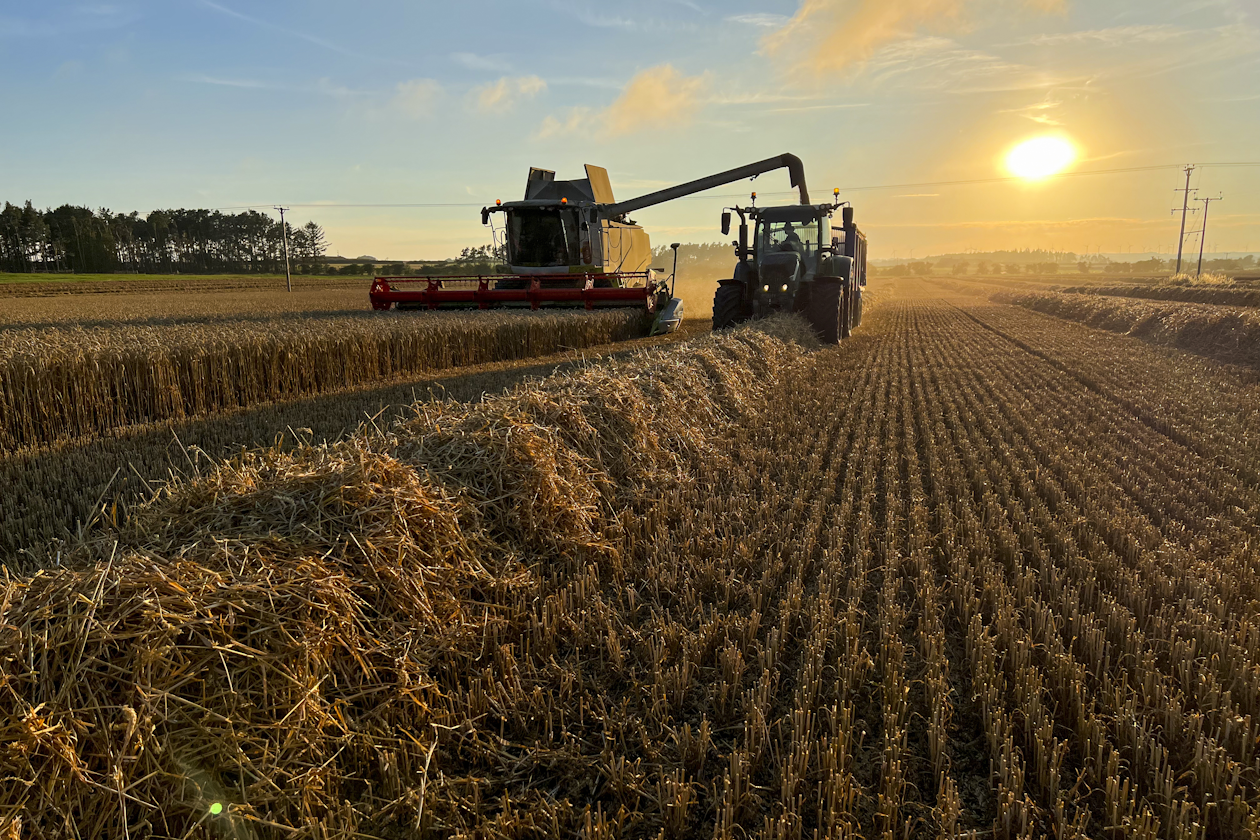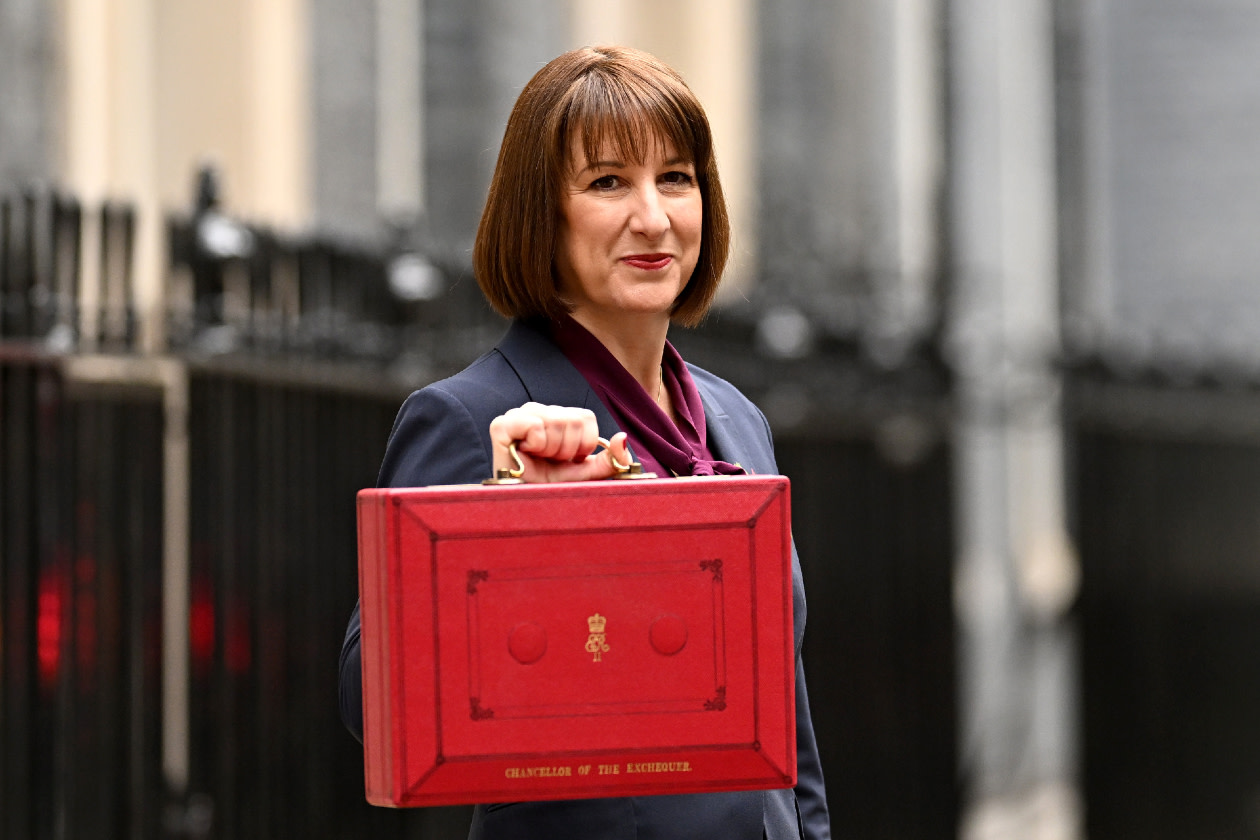Farmers across the UK are striking and protesting this week following the announcements made in Labour’s first Autumn Budget since winning the General Election.
The new inheritance tax rate of 20% on combined business and agricultural assets worth more than £1mn is what has farmers saying ‘enough is enough’. After all, it’s a sector that’s already feeling the bite of a spluttering economy.
The farmers are aiming to disrupt the supply of meat, and crops like wheat, from UK supermarkets. But this is only one piece of an ever more complex agricultural puzzle.
This article isn’t personal advice. If you’re not sure an investment is right for you, seek advice. Investments will rise and fall in value, so you could get back less than you invest.
What are the challenges?
The global population is set to rise from 8 billion to around 9.7 billion in 2050, meaning there’s set to be a lot more mouths to feed.
Summers are shining hotter for longer and, in many parts of the world, heavier rainfall and droughts are becoming the new norm.
These natural and powerful pressures are creating serious challenges that the agriculture sector must find solutions to.
What’s the solution?
A system that can avoid worsening these problems, while sustainably managing the natural landscape and protecting the future and security of farmers’ livelihoods is the ambition of a sustainable agricultural system.
Alongside this roadmap to sustainability, regulatory pressures loom in the near future for a sector that accounts for around 11% of global greenhouse gas emissions.
It’s also the largest source of methane caused by human activity, significantly contributes to the pollution of rivers, lakes and coastal waters, and is responsible for over 80% of global deforestation.
Companies that can remain agile and avoid fines and operational shocks are most likely to stand the test of time.
Here are two companies playing key roles in the transition to a more sustainable agricultural sector.
Investing in an individual company isn’t right for everyone because if that company fails, you could lose your whole investment. If you cannot afford this, investing in a single company might not be right for you. You should make sure you understand the companies you’re investing in and their specific risks. You should also make sure any shares you own are part of a diversified portfolio.
Croda
Speciality chemical company Croda International strives to be a sustainability leader, setting targets to be ‘nature, climate and people positive’ by 2030.
Croda also reports on its sustainability strategy and impact, mapping it against the UN Sustainable Development Goals. This approach is illustrative of a company thinking about sustainability holistically.
On the product side, it has several strings to its bow, one of which is crop protection. This has been a tough market lately, but its more innovative products are doing well, and it’s these which can make a meaningful contribution to sustainable agriculture.
It’s got a good record in this space having launched its first microplastic-free seed coatings back in 2020. It’s now focusing on delivery systems for biopesticides, which could help wean farmers off damaging synthetic chemicals.
All business units grew in the third quarter, helping group sales rise 8% to £407mn. That’s kept full-year guidance on track, with underlying pre-tax profits set to land between £260-£280mn, down from £308mn in the prior year.
Croda’s business mix has many moving parts. Recent profitability has been weighed down by customer destocking and increased investment in building out production capabilities.
Profitability is likely to remain soft in the near term, but there’s early signs that these headwinds are starting to ease.
The valuation’s come down significantly in recent years, reflecting its underperformance relative to peers and falling profitability. But with a lot of change going on under the bonnet, we think there’s scope for profitability and investor sentiment to turn more positive. Remember though, no returns are ever guaranteed.
John Deere
John Deere is a US-based leader in a variety of farming, forestry and construction equipment. From tractors to harvesters and turf care equipment, John Deere’s iconic green machines have farmers' needs covered.
With the global population set to continue rising in the coming decades, Deere’s working hard to deliver better and more efficient ways to help farmers feed more mouths.
Digital innovation is part of its solution. This ranges from artificial intelligence (AI) that recognises a weed from a crop, to self-driving machines that can work night and day without an operator.
But the group has faced some challenges of late.
Net sales fell 11% to $40.6bn over the first nine months of the year. Farmers are putting off upgrading their machines for as long as they can in the current economic climate.
Despite this, the profit outlook remains unchanged, with net profit forecast to be around $7bn over the full year. That’s down around 30% on last year, but still well ahead of the $5.9bn five-year average.
These cyclical challenges are part and parcel of the industry, and competition is likely to remain tough. But on a long-term view, the demand outlook is favourable and we think Deere is well-placed to benefit.
Deere’s valuation sits at the high end compared to peers, reflecting its strong brand reputation and product offering. But it does increase the risk of ups and downs if demand fails to pick back up in the near-medium term.
This article is original Hargreaves Lansdown content, published by Hargreaves Lansdown. It was correct as at the date of publication, and our views may have changed since then. Investments rise and fall in value so investors could make a loss.
This article is not advice or a recommendation to buy, sell or hold any investment. No view is given on the present or future value or price of any investment, and investors should form their own view on any proposed investment. This article has not been prepared in accordance with legal requirements designed to promote the independence of investment research and is considered a marketing communication. Non-independent research is not subject to FCA rules prohibiting dealing ahead of research, however HL has put controls in place (including dealing restrictions, physical and information barriers) to manage potential conflicts of interest presented by such dealing. Please see our full non-independent research disclosure for more information.




